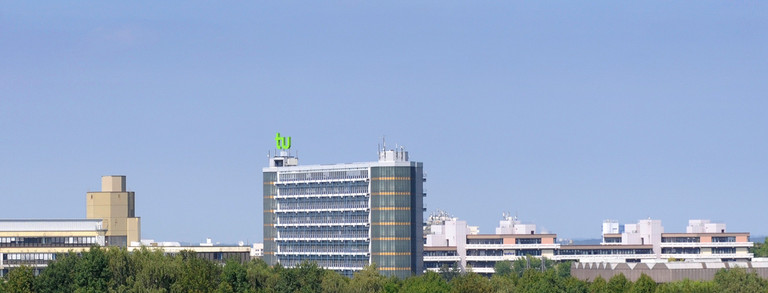Three Questions to the Climate Protection Manager at TU Dortmund University
- Top News
- Campus & Culture

Mr. Krüger, what does your role as the university’s Climate Protection Manager mean for you personally?
My main task is to develop an integrated climate protection concept for the university. This will form the basis for deriving strategic measures to reduce the university’s carbon footprint and in the long term also its operating costs. The university’s aim in this context is to make its own contribution to climate protection and at the same time fulfil the legal requirements: The Energy Efficiency Act, which entered into force in 2023, obliges public entities to save two percent of their annual final energy consumption compared to the previous year by 2045. At the same time, the State of North Rhine-Westphalia is endeavoring to make its administration carbon-neutral by 2030, and the federal state’s universities will also contribute to this. Regarding our university’s own climate protection concept, we will review the status quo on an annual basis, in particular our CO₂ emissions, develop scenarios for potential reductions, define targets and derive concrete measures. Thanks to my post co-funded by the Federal Ministry, we at the Sustainability Office are now able to concentrate more on climate protection.
You are based at the university’s Sustainability Office. How does your work fit into the existing structure?
Climate protection is part of the university’s overall Sustainability Strategy. Climate protection and reducing global warming are crucial, as every tenth of a degree helps to preserve our livelihoods. The Sustainability Office has already launched many initiatives that climate protection management can tie into: As incentives for carbon-neutral travel to the university, secure bike parking facilities were built, for example, and discounts for university staff were negotiated with local bike stores. During the energy crisis of the last years, awareness-raising activities sensitized university members toward the need to save energy. I’m looking forward to using the structures and networks established by the Sustainability Office to further upgrade climate protection at our university.
What motivates you personally and where do you see your own contribution?
What drives me is my desire to bring about sustainable change and to encourage people to be part of this transformation. In discussions at the university so far, I’ve already met a lot of motivated, supportive and forward-minded colleagues. I would like to involve all the departments and administrative units in the planning process, as well as everyone else who wants to come on board or has important input to contribute. My main goals are to expand renewable energies at the university, reduce energy consumption and introduce measures to support carbon-neutral travel to our campus. That is why, beyond drafting the climate protection concept, I’m also taking part in the discussions and planning of PV systems on university buildings and additional e-charging stations on campus.
About Nils Krüger:
Nils Krüger has been Climate Protection Manager at TU Dortmund University since September 2024. He previously worked for over ten years at EnergieAgentur.NRW and then at Energieagentur Rheinland-Pfalz. He hails from Dortmund and studied geography at Osnabrück University.





![[Translate to English:] Partner Four hands are holding the green logo of TU Dortmund University](/storages/tu_website/_processed_/1/d/csm_Partner_Nicole_Rechmann_KW_670eba0154.jpg)




![[Translate to English:] Forschung An apparatus with tubes in a laboratory](/storages/tu_website/_processed_/0/c/csm_Forschung_Juergen_Huhn_4fa3153b51.jpg)
![[Translate to English:] Studium Five students are sitting in a lecture hall. They are talking to each other.](/storages/tu_website/_processed_/c/9/csm_Studium_FelixSchmale_dbdbfb0dd7.jpg)





